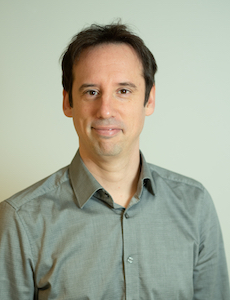Paolo Ceppi is an Associate Professor at the Department of Biochemistry and Molecular Biology (BMB) since Summer 2019. He received his PhD from the University of Torino in 2011, followed by a postdoctoral appointment in the laboratory of Prof. Marcus Peter at the R.H. Lurie Comprehensive Cancer Center of the Northwestern University in Chicago. In 2015 he was appointed as a Junior Group Leader (equivalent to Assist. Prof.) at the Interdisciplinary Center of Clinical Research (IZKF) of the FAU University of Erlangen-Nuremberg, in Germany. In 2017 he was awarded the Young Investigator Award from the International Association for the Study of Lung Cancer. His research has been funded by the Department of Defense (in US), the German Cancer Aid and the German Research Foundation (in Germany), the Danish Independent Research Fund, Novo Nordisk Foundation (2021 Hallas-Møller Ascending Investigator Grant), Danish Cancer Society and Sygeforsikringen "Danmark".
His group focuses on the identification of novel fundamental mechanisms of cancer biology using several cell and molecular biology techniques, mouse models, high-throughput approaches and the analysis of human samples. We aim at discovering novel genes and molecular pathways that regulate the plasticity and the aggressiveness of cancer cells and at studying the association between cancer differentiation and sensitivity to chemotherapy, with a special attention on metabolism genes. The final goal is the development of more effective drugs and therapeutic strategies.
Selected references:
Gollavilli et al. Oncogene 2021. doi: 10.1038/s41388-021-01708-6
Ramesh et al. Trends in Cancer 2020. doi: 10.1016/j.trecan.2020.06.005
Siddiqui et al. Cell Death and Differentiation 2019. doi: 10.1038/s41418-019-0289-6
Ramesh et al. EMBO Molecular Medicine. doi: 10.15252/emmm.202317836
Head of Research: Associate professor, PhD Paolo Ceppi
Researchers and research group: Paolo Ceppi Lab
A complete list of publications by Paolo Ceppi can be found here.
Part of the Research section of Translational Biology at the Department of Biochemistry and Molecular Biology
